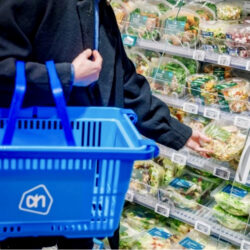Research finds evidence of supply constraints

European manufacturers and suppliers are preventing businesses from sourcing goods abroad. In the Netherlands, such territorial supply constraints (TSCs) lead to higher prices for consumers, lower profit margins for businesses and limits on product ranges, according to an independent study commissioned by the Netherlands’ Ministry of Economic Affairs and Climate Policy.
Retail chains such as Albert Heijn and Jumbo told research firm Ecorys that suppliers often “forcefully” refer customers to their Dutch branches, and it is not uncommon for manufacturers to refuse to supply products from outside of the Netherlands. The retailers suspect that manufacturers do this deliberately to drive up prices. According to the researchers, these practices occur particularly in the case of A-brands.
Retailers questioned by Ecorys say that supply constraints affect up to one in 25 products they source (2-4%). On average, it can result in the purchase price of these products being 10% higher. TSCs are commonplace for supermarkets, DIY stores and e-commerce platforms, according to buyers at such companies.
EU ban on supply constraints
There are various ways to resolve this issue, according to Ecorys. One solution could be an EU ban on supply constraints, possibly preceded by a legal ban in the Benelux countries. This could involve introducing a variant of the existing EU Geo-blocking Regulation, which could incorporate a ban on “discrimination by place of establishment” for trading companies.
The EU’s current language requirements for labels may also stand in the way of identical but cheaper products from abroad, labelled in a foreign language, being sold in the Netherlands. Therefore, the researchers say, in addition to a possible TSC ban, another option is to look at the feasibility of digital product labels that can be accessed in a consumer’s own language. After all, products are increasingly being bought online.
Broader problem
“The study confirms our suspicions that supply constraints are a broader problem with negative consequences for businesses and consumers alike. That is disappointing, especially in these times of high prices,” comments Micky Adriaansens of the Ministry of Economic Affairs and Climate Policy. She says she has worked together with her colleagues in Belgium and Luxembourg to get the matter on the European agenda, and that similar signs are also emerging from countries such as Austria and the Czech Republic.
“It is now important to study the research results and to start working on options to tackle this. However, it must be possible to apply and also legally enforce the potential solutions – such as a ban on discrimination by place of establishment for trading companies – in all EU countries. It certainly won’t be easy to move from theory to practice in this case, but we are motivated to join other countries in taking up this gauntlet to strengthen the EU internal market,” Adriaansens states.










